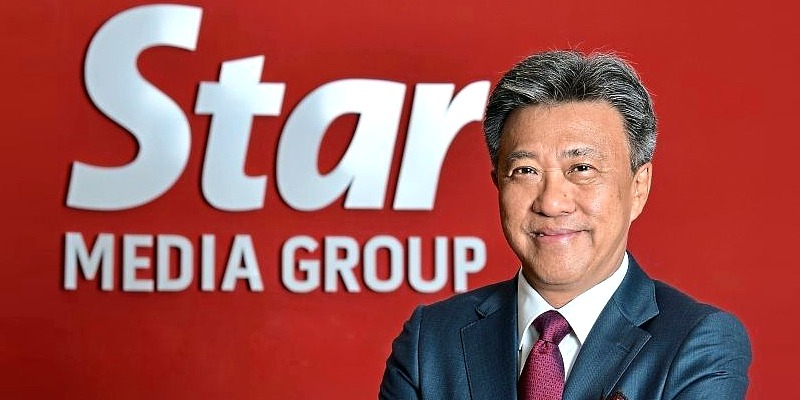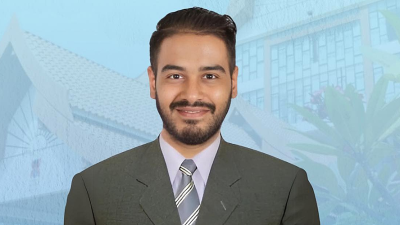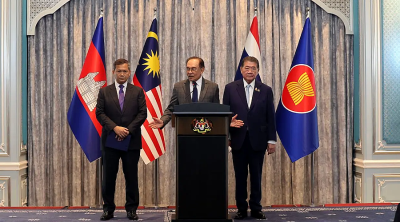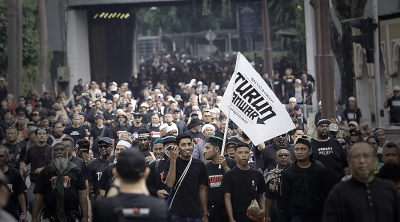
The most unfortunate thing that can happen to a politician is when he refuses to listen to good information or worse, is unwilling to listen to bad news which will eventually lead to failure in political leadership.
Politicians, like most corporate leaders, rely heavily on their staff, colleagues, and other sources of information.
With their tight schedules, especially those holding cabinet posts, they need to be surrounded with good people.
The last people they should listen to are sycophants who only tell them things they want to hear.
As for the media, they are used to being shot at despite the idiom saying, don’t shoot the messenger.
On Tuesday, Communications and Digital Minister Fahmi Fadzil lost his cool over the findings of a survey on the Unity Government’s 100 days in office that was conducted by a research firm.
The survey was carried out by O2 Research company and jointly published by Astro Awani, The Star, Sinar Harian, Sin Chew Daily and Malaysia Nanban — media houses which work closely together.
The survey, among other things, found that the respondents wanted the prime minister to focus on the cost of living (80%), education (56%), job opportunities (53%), health (52%) and political stability (49%).
The five biggest concerns for households were inability to afford needs (80%), financial savings (61%), overburdened to pay debts/loans (56%), low wage rates (53%) and education funding for self/children/family (52%).
Here’s the unhappy news – 50% felt that the economic growth was not handled well with another 52% having the same negative sentiment on food supply.
In terms of ethnicity response, the unfavorable views on the various broad topics including the state of the country and economic outlook, the Malays from the peninsula were the most critical.
The online survey polled 35,077 people nationwide from February 6 to February 16, 2023, and was carried out before the Budget.
But 54% of respondents accepted the Unity Government, and 47% backed Datuk Seri Anwar Ibrahim as prime minister.
Rather than to take an emotional and defensive response to the survey, it is better that the government use this as a finding to gauge its level of support and to identify its strengths and weaknesses.
It serves as an information guide on how Malaysians, especially the predominant Malay voters, feel about the first 100 days of the Unity Government in power.
We must also accept that no government in the world can deliver a miracle within three months, especially with the current economic climate.
This is the worst time to be a PM as expectations can sometimes be unrealistic while the ordinary people are struggling with soaring bills.
Prices of essential food items have shot up, but wages haven’t, and it is also not fair for employers to simply increase wages when they are also grappling with the cost of production. The ringgit has weakened when much of the raw materials must be paid in dollars.
Anwar and the government, in all fairness, are doing their best to meet the economic challenges, as can be seen in the recent Budget where the attention was focused mostly on the B40 and M40 groups.
The unhappiness of the respondents is a mere expression of how Malaysians feel about the economy, and if Malays make up the majority, it is simply because they form the bulk of the population.
It needs not necessarily be a perception towards the popularity of the government or Pakatan Harapan because generally most Malaysians do not want to see a change of government or PM. You don’t even need a survey for that. So, the acceptance of Anwar is there.
The 02 survey actually showed that of these respondents, 37% voted PH/Muda, 29% Perikatan Nasional and 21% Barisan Nasional, Gabungan Parti Sarawak (5.5%) and Warisan (1.4%).
As with any survey, there will always be criticisms, including its methodology especially sampling size, locations and margin of error.
Surveys have gone wrong including even the famous CNN poll which wrongly predicted Donald Trump to lose in the 2016 presidential election.
Based on anecdotes, even our Special Branch and military have made wrong predictions of the outcome based on its own surveys, of past general elections, it seems.
It is perfectly acceptable for Fahmi or other researchers/academicians or rival media groups to question the accuracy of the survey by O2.
It is good for Fahmi to find out more from the media outlets and O2 about the survey so that he can understand better. The media would also like to hear the shortcomings of the said survey, if any, so we can improve ourselves.
It will also be good for him to understand the operations of the media better as there is no requirement to wait until the 100 days proper before publishing the findings.
Likewise, the media no longer waits until December 31 before publishing their yearly wrap-up.
There is absolutely no need for Fahmi to raise doubts on the media outlets that published the survey. To say that these outlets “do some promotion or deceive the people” and the reports were “insincere and dishonest” are statements which have libelous implications.
Fahmi was also reportedly upset that the sample had too many men, saying it had 81% men when it should be more than 31 to 41%.
Speaking personally for myself, I agree that it could be better balanced in terms of gender sex.
But that does not mean that the participating media outlets have any agenda, which seems to be the normal obsession of most politicians.
Anything that does not serve their interest would be deemed as a motive.
Fahmi is a really nice and decent bloke. It’s refreshing to have a minister like him who prefers informality. Most of us in the mainstream media have much respect for him. He is accessible and friendly, so we expect much better from him.
He is no longer in the opposition and he has to remind himself of that. It is much easier to criticize than to be criticized, and as a minister, he has to accept the good and bad news.
Ironically, it was the same research house – O2 – which reported on May 20, 2022, that PH will fare well in GE15 general election, in a survey involving 1,601 people.
Interestingly, no one from PH complained that the survey was inaccurate, dishonest or out to deceive or had a promotion agenda.
It will be at the government’s peril if it merely wishes to listen to the findings of their friendly academicians, especially those from their party think-tanks.
(Wong Chun Wai is Star Media Group Advisor.)
ADVERTISEMENT
ADVERTISEMENT








































